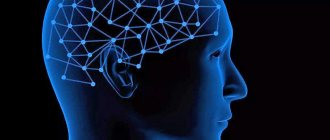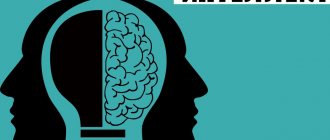Freudianism is one of the first separately formed areas of psychology, variants of the name are also possible as orthodox psychoanalysis and Freudianism-Lacanism. The concept of Freudianism appeared thanks to the founder of this theory, Zsigmond Freud, who was engaged in depth psychology and psychoanalysis as a method of cognition and personality correction.
Having several branches, we can say that its name depends on which follower’s theory the students accepted more. Those who followed Jacques Lacan are somewhat different from the followers of Freud's orthodox views, despite the fact that the scientist himself tried to return everything to its original sources. The most separated movement was Jungianism and others, which criticized the ideas of Freud himself, but remained in the concept of psychoanalytic consideration of mental processes.
Briefly, Freudianism is a direction of psychological science, where all the problems of any complexes and characteristics of an adult personality are reduced to the sexual instinct. Freudianism and neo-Freudianism are close directions, but globally different in essence. The new theory, recognizing and relying on the structures identified in the classical understanding (such as complexes, structure-I concepts, id and super-ego, as well as psychological defenses and regression), speaks of the individualistic formation of man, the humanistic approach, representing a more expanded model , which denies the division of people according to the principle of biology and sexual desire. Many critical comments even at the time of its formation, and especially after with the development of the evidentiary and experimental base, were directed towards Freudianism, since all the conclusions were based on the study of a couple of cases and the theoretical speculations of the author himself without experimental evidence.
Being the beginning of psychoanalysis, Freudianism represents only a small part of it, moreover, it is skeletal and quite difficult, both for understanding and for the practice of psychocorrection, restoration, etc. Psychoanalysis is not identical to Freud’s theory itself, therefore it is worth separately describing the key points of Freudianism in order to avoid confusion with other more progressive theories that are not subject to such massive criticism.
To begin with, any actions and even dreams are interpreted from a sexual position, the impossibility of satisfying them, or vice versa. The stages of personality formation are strictly structured and also have a sexual basis, in addition, each individual is considered as going through certain basic complexes (Oedipus, Electra), with the only difference being that this passage has a different outcome.
Definition of "Freudianism"
The term comes from the name of the famous scientist Sigmund Freud, who proposed his theory of human psychoanalysis. Freudianism is a theory of psychoanalysis that explains some mental processes that occur at the unconscious level. According to Freud, the entire mental life of a person consists of three main levels: unconscious, preconscious and conscious.
Freud associates the unconscious level with sexual energy. Freud in his theory identifies the following components of personality:
- “Id” is the carrier of instincts.
- “Ego”, or in other words “I”, which acts according to the principle of reality.
- “Super-Ego”, or “Super-I”, is responsible for the moral qualities of the individual.
If a conflict arises between these components, then defense mechanisms begin to appear.
Components of the psyche
The human psyche consists of the Conscious and the Unconscious. They are not equivalent: The unconscious tries to suppress consciousness and force the individual to follow his primary drives: Eros and Thanatos. Eros causes sexual desire, Thanatos – the need for death, one’s own and others’. If primary drives merge, a person becomes a maniac. He is unable to be guided by the principles of reality and sees the world as distorted, created to satisfy his desires. The need to achieve harmony between the components of the psyche forces him to commit murders and crimes of a sexual nature.
The role of Freudianism in psychology
Freudianism in psychology occupies a very important stage, because it is thanks to Freud’s teachings that we can talk about the treatment of neuroses and prolonged depression, but for this it is necessary first of all to identify the cause of these diseases. The main point for starting treatment is first of all psychoanalysis. Freud's experiments using hypnosis proved that various feelings and the desire to achieve a goal can change the behavior of the subject, even if he himself is not fully aware of it.
Personality
Initially, the idea of the human individual as a rational being was entrenched in philosophy. All actions were viewed as the result of a conscious decision.
This was the case before the discovery of the unconscious - a hidden component that guides the actions of an individual, but remains unconscious.
Freud suggested that the psyche of the individual is not whole. This is a structure consisting of separate parts:
- “I” is responsible for a conscious understanding of reality;
- “Super-I” - controls components formed under the influence of social norms;
- “It” stores repressed instincts and desires.
Every person has all the components. They constantly interact with each other. When he has any desire, the Conscious One evaluates it from the point of view of moral standards. If the fulfillment of a desire is fraught with a violation of these norms, it moves into the hidden part of the personality structure and remains there until it is satisfied. The more moral prohibitions an individual has (the stronger his will), the more unfulfilled desires he will have, hidden from the conscious outside the framework of the “It”. Constant control over one's aspirations causes neuroses - somatic manifestations expressed in physical and mental discomfort. Freudianism in philosophy made it possible to make significant progress in the study of one of the main issues of knowledge - the essence of man.
The basis of the emergence of Freudianism
Based on his long clinical observations, Sigmund Freud was able to form a new, until then unknown psychological concept. Freudianism is also a theory that is based on the concept of a triune personality structure:
- “It” in this case refers to mental processes that occur on an unconscious level. This means that these mental processes were laid down even before the birth of the child, for example, heredity plays a role. “It” is aimed at obtaining pleasure of any nature, primarily sexual.
- The second structure is called “I”. It is aimed at maintaining balance, so the “I” is almost constantly in conflict with the “It”. For every person, his “I” lives in reality, that is, mental processes begin to manifest themselves after a certain situation arises that requires an immediate solution. Freud classifies this structure as innate; it is formed not only at the unconscious level, but also in the preconscious.
3. The third structure is called the “Super-I”. It is considered to be acquired during life and plays the role of critic and conscience. Therefore, if the “I” cannot cope with the “It,” then the “Super-Ego” comes into force, which acts according to conscience. If a person cannot find an outlet for his “super-ego” for a long time, Freud advises to give an outlet to this energy through conversation or even express oneself in creativity.
The origins of smoking addiction
Freud divided mental development into stages depending on the method of obtaining pleasure. He called the first oral - the stage of receiving pleasure using the mouth area. Babies, feeding on milk from the mother's breast, stimulate the oral cavity. In the process of satiation, they develop a feeling of satisfaction, and it is automatically associated with swallowing, chewing, and licking.
Freud believed that smoking addiction occurs in people who need to satisfy their needs, but have the ability to realize them. These people mentally return to the first stage of development and unconsciously strive to influence the oral cavity.
Freud once stated that women's addiction to smoking is a subconscious desire for oral sex. The scientist himself suffered from nicotine addiction, and his students immediately reminded him of this, hoping to confuse him. In response to this, Freud said his famous phrase, which later became a catchphrase: “Sometimes a cigar is just a cigar.”
What is the essence of Freudianism?
A doctor can properly direct a person’s energy by conducting psychoanalysis. Freudianism indicates that in some cases a person can cope with his problem on his own, but for this the psyche must turn on protection; if this does not happen, then it will not be possible to do without the help of a specialist. Here are the main types of protection:
- Initially, defense manifests itself in the repression and suppression of thoughts that are considered unacceptable.
- When projection occurs, at an unconscious level the human psyche tries to get rid of obsessive desires and ideas.
- Rationalization manifests itself when it is not possible to abandon an idea, and then a person tries to justify himself.
Functions of the unconscious
“It” or the Unconscious requires a person to satisfy needs. The unconscious is guided only by internal desires, it is selfish and inconsistent. According to Freud, the main human desires are the desire to reproduce and power, the desire to experience pleasure and avoid feelings of fear. If a person is guided in his actions by the Conscious, the Unconscious comes into conflict with him. There is emotional tension that needs to be eliminated. To do this, the psyche uses the following techniques:
- Repression is the movement of desires into the “It” region, where they continue to influence the psyche, causing a feeling of unaccountable fear and anxiety.
- Rationalization - searching for a more acceptable explanation for true desires, eliminating feelings of shame.
- Sublimation - replacing instinctive drives with other activities: creativity, social work and others.
- Regression is a person’s refusal to perceive reality, a return to a stage of personality development that could provide psychological comfort.
The constant conflict between the Conscious and the Unconscious leads to mental disorders. The main goal of psychoanalysis is to determine a person’s true desires and find compromise ways to realize them.
Main directions in Freudianism
Freud identifies three main motives: anxiety, aggression and sensuality. Freudianism considers them to be the basis of all human actions. The direction is divided into five main phases of personality development:
1. The oral phase, which manifests itself even at the birth of a child, for example, a child, having been born, immediately strives to suck the mother’s breast.
2. The anal phase consists of praising a child who can already go to the potty on his own.
3. Phallic behavior manifests itself at a more mature age, when the child begins to communicate with his peers of different sexes and is able to compare himself and others.
4. Latent manifests itself during a period when interest in sexual characteristics fades away somewhat.
5. Genital comes when full puberty occurs.
The tasks of psychoanalysis in Freudianism
If we describe Freudianism briefly, then the main objectives of this teaching and psychoanalysis for the treatment of mental disorders can be considered:
- Recreation from all the data collected as an anamnesis of symptoms that are pathological for a person.
- The ability to reconstruct the event that caused the trauma, release suppressed energy and give this energy the opportunity to choose a new direction.
Psychoanalysis is carried out so that in the future a person can avoid turning his excessive suffering into neurosis. In this way, according to Freud, it is also possible to suppress a person’s conflict.
Representatives of Freudianism
Freudianism is a theory that was developed in the future. The representatives of this theory later became the students of Freud himself. A. Adler slightly reworked his teacher’s theory, pointing out that the main thing in psychoanalysis is not the drives occurring at the unconscious level, but the desire of each person to assert himself in society. According to Adler, all the processes described by Freud can manifest themselves only after the child feels inferior in comparison with adults.
G. Jung is considered another prominent representative of Freud’s teachings, who not only supported the theory of his teacher, but also actively began to develop it, arguing that psychoanalysis not only can influence one person, but also influences the behavior of an entire group. The ideas of Freudianism were actively supported by Otto Rank, who found the main factors of fear and anxiety. In his opinion, they are hidden even in the birth of a person; his theory is called “birth trauma.”
Phenomenology
The term “phenomenology” (from the Greek phenomenon) denotes one of the most influential trends in the development of philosophy and intellectual culture in general in Western Europe in the 20th century. The German philosopher Edmund Husserl is considered the founder of phenomenology; the most prominent representative of this trend was the French philosopher Maurice Merleau-Ponty. A number of works in line with phenomenology belong to the existentialists Martin Heidegger and Jean-Paul Sartre.
A distinctive feature of phenomenology as a philosophical doctrine is the rejection of any abstractions and idealizations as a means of philosophizing. The starting point of phenomenology is the recognition of “the possibility of describing the spontaneous life of consciousness in terms of a continuous flow of meanings” (Husserl) or “interpreting the basic structures of human existence” (Heidegger). The main idea of phenomenology is the continuity and at the same time the fundamental irreducibility to each other of consciousness, personal existence and the material world, physical reality, social reality and spiritual culture. Husserl's slogan "Back to the objects themselves!" means a separation of consciousness and the objective world from the causal and functional connections between them, as well as from their dialectical-mystical penetration. “Pure consciousness” as direct signification or intentionality separates itself from mythological, ideological, scientific and everyday practical attitudes and schemes.
Movement towards objects is the creation of a direct field of meanings, a field of meanings between the phenomena of consciousness and fragments of reality, and these meanings are phenomena. This movement involves, on the one hand, a critique of naturalistic and psychological ideas about things as such, and on the other, a demarcation between the facts of consciousness and reality. Husserl contrasts the extremes of naive contemplation and agnosticism. From the point of view of the “father of phenomenology,” any object can be “grabbed” by the subject only as a correlate of consciousness, as something that is not integral, but participates in sensation, perception, concept, judgment, memory and imagination.
According to Husserl, the phenomenological attitude is not aimed at the perception of the known and the identification of yet unknown properties, functions, relationships of things, but at the process of perception itself as a process of forming a certain spectrum of meanings found in an object. Reflection on perception, its phases and unity can occur regardless of whether the object of perception or comprehension actually exists or is just an illusion, hallucination or mirage. In this case, “indifference” to the existence of an object is fundamental: consciousness is seen as “an interweaving of experiences in the unity of a flow” that is absolutely not definable by the object whose meaning it constructs and constitutes. At the same time, consciousness is not exclusively the “internal content of the subject”: it is “connected with the external existence of things, sent by it, transmitted by it,” but at the same time in consciousness there is “nothing except the meanings and meanings of real or imaginary objects.”
The emergence of neo-Freudianism
Of course, Freud's theory remained a key phenomenon in all cases, so we can say that Freudianism is the foundation that was laid in neo-Freudianism. Freud's psychoanalysis was based solely on three levels that exist in the psyche of every person, but representatives of neo-Freudianism argued that the leading role still remains with socio-cultural influence. It is the influence of society that can cause internal conflict in a person. For example, a feeling such as anxiety can arise in a child only after he encounters a hostile world.
Despite the fact that the two theories, Freudianism and neo-Freudianism, have quite a lot of differences, the same unconscious processes were taken as the basis. Hatred and anxiety cause discomfort to the individual, so there is a struggle within the person himself, and this is the reason for the conflict within oneself, which requires immediate elimination, otherwise mental illness may occur.
CONCLUSION
Freudianism neo-Freudianism psychoanalysis
Of all the riddles of existence, not one is as important for modern man as the riddle of one’s own existence and the establishment of one’s own special, personal conditionality and exclusivity.
Freud once again brought psychology, which by that time had become an abstract science, to this focus of a person’s inner life. For the first time, with almost artistic power, he developed the dramatic elements inherent in man - this convulsive play of flickering in the twilight light of the subconscious, where an insignificant impulse reverberates with the most distant consequences and the past and the present are intertwined in the most amazing combinations - truly a whole world in the close circulation of the human body, boundless in its integrity and yet charming as a spectacle, in its incomprehensible pattern.
And what is natural in a person - this is the decisive reinstallation of Freud's teaching - is in no way amenable to academic schematization, but can only be experienced, lived out together with him and known in the process of this living out, as uniquely characteristic of him. The personality of a person is comprehended not with the help of frozen formulas, but exclusively from the imprints of the experiences sent to him by fate; therefore, all healing in the narrow sense of the word, all help in the moral sense presupposes, according to Freud, knowledge of the individual, but knowledge that is affirming, sympathetic, and therefore truly complete. Therefore, respect for the individual, for this, in Goethe’s sense, “revealed secret” is for him the immutable beginning of all psychology and all mental healing, and Freud, like no one else, taught us to preserve this respect as a kind of moral law.
Only thanks to him, thousands and hundreds of thousands learned about the vulnerability of the soul, especially the child’s, and in the face of the manifestations he revealed, they began to understand that any rough touch, any unceremonious penetration (often through just one word!) into this hypersensitive, endowed with the fatal power of recollection matter can be destroyed by fate and that, consequently, all sorts of thoughtless prohibitions, punishments, threats and coercive measures impose previously unknown responsibility on the punisher. He invariably introduced into the consciousness of modern times - schools, churches, courtrooms - respect for the individual, even in the ways of his deviations from the norm, and with this deeper penetration into the soul he implanted in the world more foresight and forbearance.
The art of mutual understanding, this most important art in human relations, which can contribute to the emergence of the highest humanity, owes its development to Freud's teaching on personality much more than to any other method of our time; It was only thanks to him that the meaning of the individual, the unique value of every human soul, became clear to our era, in a new and real understanding. Walking his own, third-party path, Freud invariably ended up in the center of life - in the human realm.
And while specialists still cannot come to terms with the fact that his work is not consistent with the strictly academic forms of medicine, natural science or philosophy, while privy councilors and scientists still argue furiously about individual points and about the ultimate goal of his labor, Freud's teaching has long been revealed as immutably true - true in that creative sense, which is captured in the unforgettable words of Goethe: “What is fruitful is the only true one.”
10 pages, 4881 words
Psychoanalysis and its philosophical meaning
... psychoanalysis. .Consider the concepts of man, society and culture in the works of K. Horney and E. Fromm, who were followers of the philosophy of psychoanalysis. Chapter I. Problems of personality, society and culture in the philosophy of psychoanalysis... In addition, psychoanalytic theory and Freudianism influenced the work of many artists... although he was a follower of Freud’s ideas, he expanded the boundaries of the Freudian concept...
Representatives of neo-Freudianism
There were many more representatives of neo-Freudianism than Freudianism itself. Several scientists can be called the most prominent. Thus, G. Sullivan argues that a person’s personality is not an innate phenomenon, but an acquired one, and it is formed exclusively with the help of the society that surrounds it. That is, the baby begins to repeat the interpersonal relationships that he has as a model. A child’s personality in childhood can be formed even during play, when the child communicates with peers.
E. Fromm in his works points out that a person is a combination of biological and social principles. In his opinion, the entire human psychology is based on the love of life and the desire for death.
Psychoanalysis shows that a person may be prone to neurosis if he has not been able to find love and understanding in society. It is important for each individual to achieve complete harmony in society, which he strives for throughout his life. According to many scientists, if an individual can be healed, then there is a possibility that a complete healing of society can occur.
It is worth noting that all the ideas of Freudians and neo-Freudians were able to influence social life and the development of culture and ethics. As for society itself, it is on the path to improvement.
Oedipus complex and Electra complex
Freud's concept of philosophy includes a deep analysis of human sexual desires. The scientist believed that they are formed in childhood and manifest themselves as the Oedipus Complex or the Electra Complex.
The description of the complexes was based on Freud’s observations of child-parent relationships and ways of showing affection in boys and girls. He found that boys pay much more attention to their mother, strive to hug or kiss her, and require constant attention. If a mother prefers to spend more time with her husband rather than with her son, the boy becomes jealous. Unconsciously, he experiences sexual cravings for his mother and perceives his father as a rival. Girls demonstrate attachment to their father and show a negative reaction to his attitude towards their mother.










